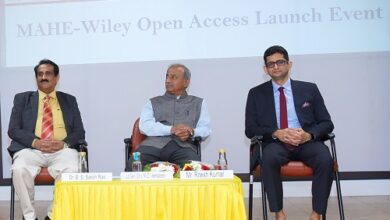
The Enduring Flame: A History of Education, Not an Invention
Who-invented-education. Education, the act of passing knowledge and skills from one generation to the next, is as fundamental to humanity as language itself. It’s not something invented by a single person, but rather a practice that has evolved throughout history alongside civilization. This article explores the long and fascinating story of education, from its ancient roots to the ever-changing systems of today.
Seeds of Knowledge: Early Education in Ancient Civilizations
The concept of formal education stretches back millennia. Some of the earliest evidence comes from Mesopotamia and Egypt, where societies developed complex writing systems. Schools, often attached to temples or palaces, were established to train scribes and priests in the intricacies of these writing systems. These institutions focused on the preservation and transmission of religious texts, administrative records, and scientific knowledge. who-invented-education.
In ancient China, education played a crucial role in training bureaucrats and officials for the vast imperial administration. The Han Dynasty (206 BCE–220 CE) implemented a standardized civil service examination system where candidates were tested on their knowledge of Confucian classics and other essential skills. This meritocratic system ensured that the most qualified individuals filled government positions.
Across the Mediterranean, ancient Greece and Rome developed robust educational philosophies that continue to influence us today. Greek education emphasized intellectual development, logic, and critical thinking. Boys from prominent families attended schools where they studied philosophy, literature, rhetoric, mathematics, and physical education. The aim was to produce well-rounded citizens capable of participating actively in public life.
Roman education, heavily influenced by the Greeks, initially focused on practical skills like oratory, law, and warfare. Over time, it adopted more elements of Greek philosophy and literature, creating a more holistic educational experience for the elite. who-invented-education.
These early forms of education were far from egalitarian. Access was primarily restricted to the children of the wealthy and privileged. However, they laid the groundwork for the development of more structured and accessible educational systems in the centuries to come.
The Rise of Religious Education and the Spread of Literacy
The rise of major world religions such as Christianity, Islam, and Buddhism significantly impacted the landscape of education. Religious institutions established schools to teach religious texts, doctrine, and morality. These schools not only educated future religious leaders but also played a crucial role in spreading literacy and basic skills among the broader population.
In Europe, during the Middle Ages, monasteries emerged as centers of learning, preserving, and copying ancient texts. Monastic schools provided education in theology, philosophy, and classical languages for boys destined for the clergy or other prestigious positions.
A turning point was reached in 1440 when Johannes Gutenberg invented the printing press.The mass production of books facilitated the spread of knowledge and ideas beyond the confines of monasteries and universities. This rise in literacy fueled the growth of public schools, particularly in Protestant regions that emphasized individual Bible reading.
The Enlightenment and the Birth of Modern Education
The Age of Enlightenment in the 18th century ushered in a new era of educational thought. Thinkers like John Locke and Jean-Jacques Rousseau challenged traditional methods and advocated for education that fostered critical thinking, individual potential, and citizenship.
Horace Mann, often lauded as the “Father of American Education,” played a pivotal role in shaping modern public education systems in the 19th century. As Secretary of the Massachusetts Board of Education, he championed the creation of free, tax-supported schools with trained teachers and a standardized curriculum. Mann’s vision aimed to educate all citizens, foster social mobility, and foster a well-informed democracy.
The 19th and 20th centuries witnessed a global expansion of public education systems. Compulsory education laws ensured that children received basic literacy and numeracy skills. Educational methods evolved, incorporating new pedagogical theories and technologies. The rise of universities offered higher education opportunities to a wider range of people. who-invented-education.
The Challenges and Opportunities of the 21st Century
Today, education faces new challenges. Globalization, technological advancements, and the ever-changing nature of the job market necessitate continuous adaptation. Educational systems worldwide grapple with issues like equity, access, and the need to equip students with the skills required to thrive in a digital age.
The future of education is likely to see a greater emphasis on critical thinking, problem-solving, collaboration, and digital literacy. Personalized learning approaches that cater to individual needs and learning styles are gaining traction. Educational technology plays an increasingly important role, offering new ways to deliver instruction and create engaging learning experiences.
Conclusion: Education: A Journey, Not a Destination
Education is not a static invention but rather an ongoing journey of human development. From its ancient roots to the challenges and opportunities of the 21st century, the story of education is one of continuous adaptation and evolution. As we strive to create a more just, informed, and sustainable future, education remains an essential tool for empowering individuals and societies to reach their full potential.



